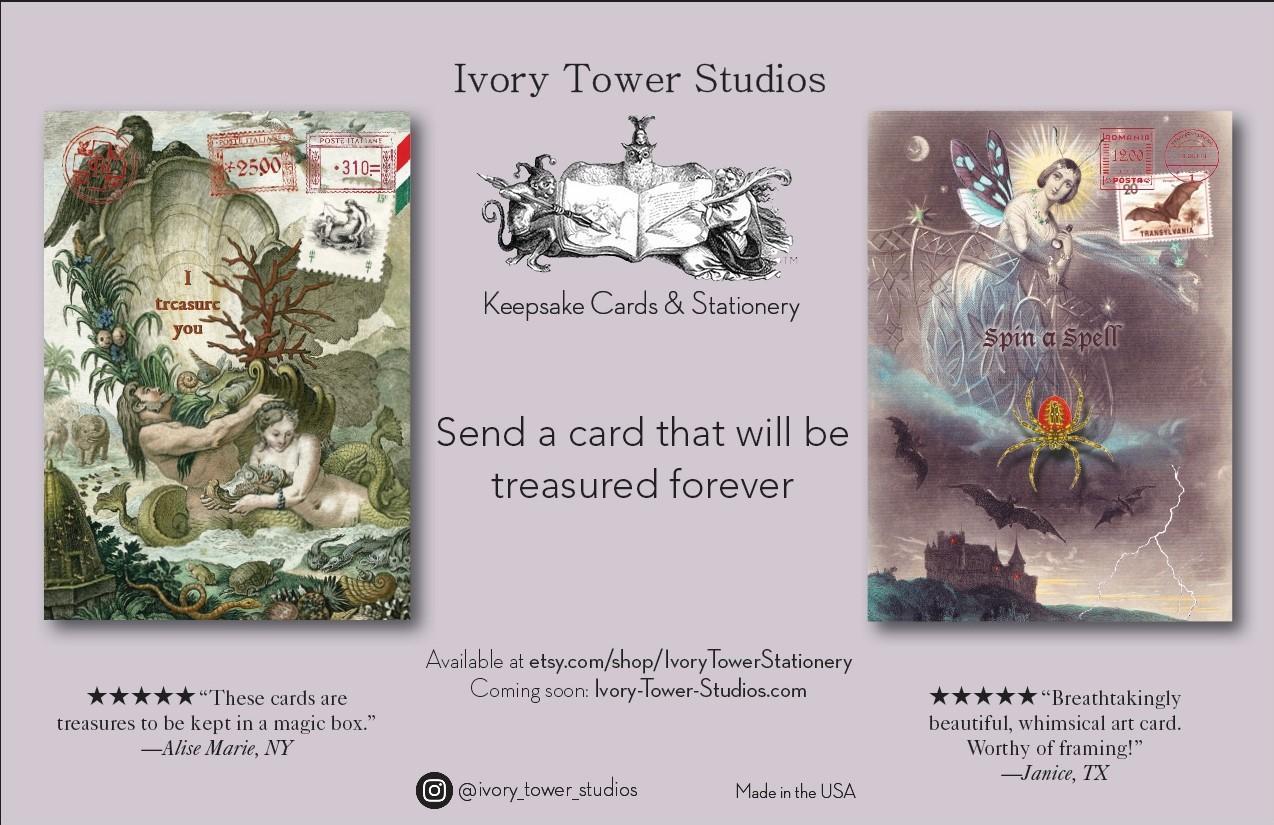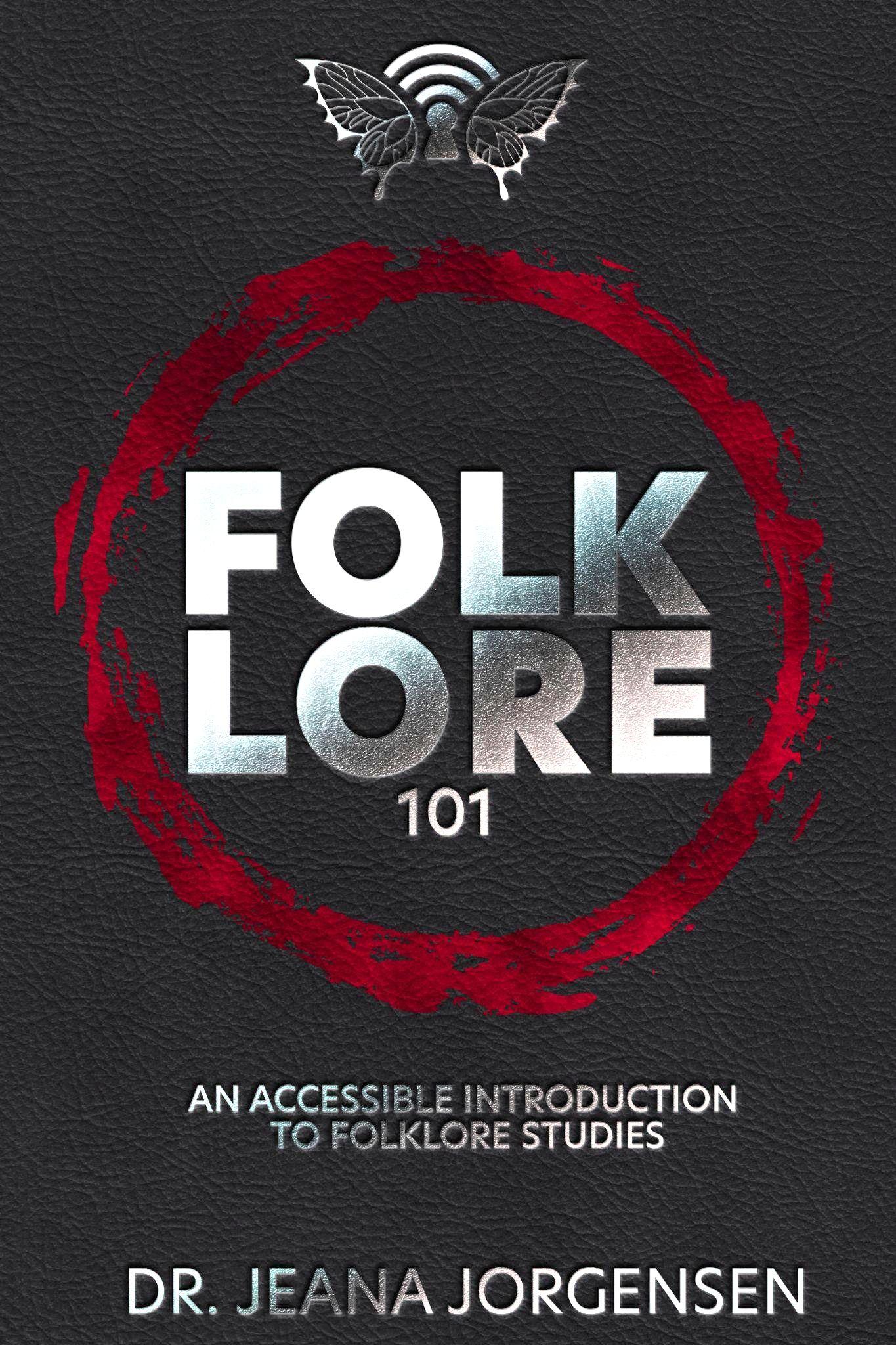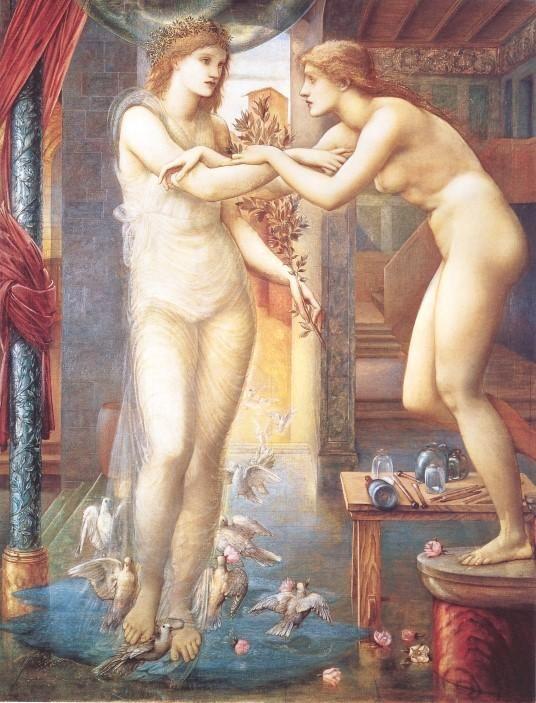
12 minute read
THE CABIN IN THE WOOD
by AJ CUNDER
n the night of my fiftieth birthday, cluttered candles on the cake still warm and smoky, I questioned Mother about her lineage. A shade passed over her, as it always did when I asked, and she withdrew to the shadows, hollow. “Best you don’t know,” was the only morsel she offered. “Not yet anyway.”
Advertisement
Sheneverdidgetthechancetotellme.
The following night, my parents died in a car accident. According to the police, my father sufferedastroke,hoppedthemedianintooncomingtraffic.Iaffordedmyselfamomentofgrief,atearor two escaping, then tucked it away before it could do any more damage. What-ifs and if-onlys already hardened my heart. I had no room for more. I distracted myself with the paperwork of funeral arrangements, probate, interring my parents peacefully in the ground. I wondered if my child would call ortextafterIleftavoicemailwiththenews.
Instead, a few days after the burial, a lawyer rang. He gave the name of his firm, Aarne, Thompson, and Uther, est. 1857, and an address in Germany. Said there was important business regardingmymother’sestate.
“I’msorry,Mr...whichoneareyou?”
“IamMr.Aarne,”thetinnyvoicecamethrough.
“Mr...”
“AndIamMr.Thompson,”avoiceinterrupted.
“AlsoMr.Uther,”athirdsaid.
I swished a mouthful of bitter black coffee, my third cup that morning, from a chipped mug that irritated my lip. It was a Christmas gift years ago, the words Best Mom Ever cracked and fading after countlesscyclesthroughthedishwasher.
Throughmyapartmentwindow,theHudsonValleysparkledasthesunstreakedgoldenacross the hills. Since my parents’death, a strange unease had settled upon me, like losing an important to-do list and forgetting what was on it. That and a latent hunger that refused to abate, no matter how many egg sandwichesImade.
“Itisimportantbusiness,”Mr.Aarnesaidagain.OrmaybeitwasMr.Uther.Icouldn’tquite place the accent. German, but the inflections sounded... ancient. “Your presence is required. I do not mean to soundcrude,butthereisamatterofinheritance,andnoinsignificantsum.”
I would need time off work. A reason to escape the production ledgers and account audits combingthroughHersheyfactories.Mysupervisorwouldunderstand.Iwasgrieving.
Iheldmyhandoverthemug,vaporscurlingthroughfingers.
“Givemetwodays.”
I arrived inAchern, Germany a quarter past midnight, local time, after an hour-long drive from Stuttgartwithacabbywhodidn’tspeakEnglish.Stumblingthroughjet-lag,Ioverpaidtheinn-keepwho insisted I hadn’t, went to bed in my clothes because I’d forgotten my pajamas, and endured an owl hooting outside my window for the better part of the night. When dawn finally slipped through the shades,Isplashedwateronmyface,drankstalecoffeeaspartofthecomplimentarybreakfast,andlaced upmywalkingshoes.
The streets seemed to skip through time as I followed my phone’s blue-outlined path, ticking back a decade each block until cobblestones lined narrow avenues, hand-painted signs swung from shops,andbrassknockersgraceddoorsofpeelingandfadedgreen.Eventheairtastedfresher,asthough untouchedbythesmogofindustry.Thequaintbuildingsremindedmeofgingerbreadhouses.
The offices ofAarne, Thompson, and Uther boasted a sign that said the same, the names arched over a raven mid-flight, with the number 327A. I raised a hand to knock, but the door opened before I could. An elderly man greeted me, his pate pale and shaven, handlebar mustache quivering violently, extendingnearlysixinchestoeitherside.“Welcome,welcome,FrauGrace.IamMr.Aarne.”
“And I, Mr. Thompson.”Aman of identical composure descended a creaking staircase into the foyerthatsmelledofoldtallowcandlesandthemustofyellowedpaper.
“WhereisMr.Uther?”Iasked,beginningtowonderwhatsortoffairytaleIhadsteppedinto.
“Presently,hewilljoinus,”Mr.Aarneassured,checkingasilverpocketwatch.“Meanwhile, may Ioffercoffee?”
Itsmelledofcinnamonandnutmeg.
“Bloodoftheforest,wecallithere,”Mr.Thompsonsaid.
“Sustainablysourced,ofcourse,”Mr.Aarneaddedaswemovedtoaconferenceroomwithwalls of bookshelves filled with leather bindings cracking. I spied some tales I remembered from college courses, before I switched to a business major, One Thousand and One Nights beside authors like Hans ChristianAndersenandtheBrothersGrimm.
“Yourflight,howwasit?”Mr.Aarneasked.
“Fine. Look, I don’t mean to be rude.” I set the mug down—reluctantly, fighting addiction and novelty that would have me drink it all in one gulp. “But I’ve come a long way. I barely slept last night. I’mhereforanswersaboutmyfamily’spast,ifyouhaveany.Ifnot,I’llbeonmyway.”
Mr.Aarnegaveaslightbow.“Asyouwish.Please,sit.Ah,Mr.Uther.”
A third man ascended from the building’s basement, completing the trio. “Apologies for the delay. It took a moment to wrestle this from the bookkeeper.” He brandished a folded parchment paper witharedwaxseal.
“Mymother’swill?”Iventured,hesitanttoinquirewho—orwhat—thebookkeepermightbe.
“Indeed,” Mr. Aarne assured. The three men sat around me, leaning in as though preparing to shareasacredsecret.Mr.Uthercrackedthesealwithhisfingernail.
Feathery script flowed across the parchment, the ink faded. Whether I needed glasses or the handwritingwastoodated,Icouldn’tdiscernmorethanahandfulofwords,someofwhichseemedtobe in German, others in an even stranger language—Anglo-Saxon, perhaps, pictographic characters like the Futhark.
The reminder of my parents’ death twisted in my chest like a heart attack. I’d never see my mother mother again, never hear her laugh that sounded more like a hiccup, taste her cookies that never would flatten. Never see my father with eyebrows like caterpillars that wiggled when he yawned, feel his hugs that held me tighter than any security blanket. But I kept it all down, pushed into the hollow of my stomach, and bottled my tears. I had brokered enough boardroom deals, and was practiced in the art of keepingmyfaceablankslate.

Mr. Aarne affixed a monocle to his eye, squinting as he peered at the page. “I, Geraldine Leckermaul, being of sound mind and body, do hereby bequeath to my daughter the property henceforth knownasthecabininthewood.”
“Whendidmymothersignthis?”Iasked.Hehadreadhermaidenname.
“Atthepassingofhermother,”Mr.Utheranswered.“Theyear2002,ifrecollectionserves.”
I had never met my grandmother. I remembered a time that year—I was only ten—when Mother disappeared for a few days. My father never said much about it. Thinking back, mother might have mentionedGermany.
“Whydoesitsaydaughter?Whatifshehadason?”
“There is a circumstance, in your mother’s family,” Mr.Thompson said, “where each generation hasone—andonlyone—child,eachofthemadaughter.Yourself,doyouhavechildren?”
Iswallowed.“Yes.”
“Adaughter?”
I almost shook my head; but then I nodded, the path of least resistance, still struggling... unsure myself of what to believe. “We don’t speak though, since...” Since she told me one day she was actually aheandIsaid,Iwillnottoleratethatnonsenseundermyroof.
I remember the look that washed over her...him, a hurt so deep it seemed almost bodily. I nearly reached out, a sudden desire to hug my child like I once did to ease the pain of a bruised knee, but the businesswoman in me rejected such a concession. My mother said it was just a phase, insisted I had a daughter, her brow furrowed with worry lines, just a matter of psychology, she’d said; Jenny will come round eventually. My child cut his hair and moved to California with my husband who divorced me. I watched the moving truck gather their belongings from the window of my office. I didn’t even say goodbye.
Ayearortwoafter,Itriedcalling.Neithercalledmeback.Lately,inthelonely,darkhoursof the night with only a bottle of wine to keep me company, I’d crawl through posts of mutual friends on Facebook,followingsnippetsofmychild’slifethroughacomputerscreen.
“Whereisthiscabin?”Ituckedthoughtsofmysonbesidegriefformyparents.
Mr.Thompsonanswered,“IntheBlackForest,undertheshadowofFeldbergMountain.”
Mr.Aarneheldoutaquill,itsvanelikemidnight.“Signthepaper,anditisyours.”
MyhandreachedupinstinctivelybeforeIpulledback.“WhatifIdon’twantit?”
Theychuckled.
“It is written in the will, the cabin must have a Leckermaul,” Mr. Aarne said with a wry smile. “Aswellyoumightsuggestsplittingyoursoulfromyourbody.”
“Orburningyourhandinafire,”Mr.Thompsonaddedsottovoce.
“Orcuttingyourheadofffromyourneck!”Mr.Utherslappedhisknee.
The quill fit naturally in my fingers. I didn’t even remember accepting it. “Where’s the ink?” I asked, asked,mythroatsuddenlydry.
“Justwrite.Theinkwillflow.”
Nib touched parchment and drew my hand across, tracing my signature in red that bled and stained the page. My fingers paled, a bout of lightheadedness sweeping over me. Before Mr. Aarne folded the parchment, my signature seemed to fade, my child’s old name replacing mine under the signatureline,mynamereplacingmymother’sabove.
Mr.Aarnegesturedtothedoor.“Acaroutsidewaitsforyou.”
“WhereamIgoing?”
Thethreemenallgrinned.“Thecabin,ofcourse.”

The driver parked in a dirt lot overshadowed by ancient trees. Like the cabby from Stuttgart, he saidlittleduringtheride,whichsuitedmejustaswell.Tintedwindowsandleatherseatslulledmeintoa fitful half-sleep, questions churning, speculation sifting dreams, my stomach refusing to quiet. Easing out of the car, I stretched my legs and arched my stiffened spine. I examined the paper map Mr.Aarne hadprovided.Cragsscarredthepage,atracktracedinblackfromtheroadupthemountainside. FollowtheWoodcutter’sTrail.Halfakilometer.
“Areyougoingtowaithere?”Iaskedthedriver.
Henodded,eyesinscrutablebehindsilveredglasses.
The sun descended from its zenith as I pushed through bramble and branch. I paused for a moment to examine a piece of dead wood that had been tied to a tree, the hollow shell slapping against thetrunkasthewinddisturbedit,soundingalmostlikeanaxchopping,orametronomekeepingtime.A snow-white bird cocked its head, gave a shrill tweet, and flew up toward the mountaintop. I rested against a boulder, catching my breath beside a sheer drop before continuing, following the songbird’s twitter.
Soon enough, the path emerged in a clearing with a cabin at its center. Dark logs formed walls, a substance oozing between them like syrup. Suddenly I wanted pancakes. Glass windows sparkled like ice, a dusting of snow on the rooftop like frosting, a shaft of sunlight striking the chimney wreathed in licorice vines. I shivered without my jacket in an alpine draft, heavy shadows wreathing the cabin. I thoughtofmymother’sfamilylivinghereinthepast,buildingahomefromtheforest.Acertainsense of wonder drew me to the door, a pitted handle of iron. The smell of something baking filled the air, somethingsweetlikecupcakes.Myhungerdeepened,cloudingmymind.
The door gave way, soundless, not even a squeak or squeal from the hinges. Ambient light illuminated the interior well enough, though a row of candles lined a nearby table, wicks half-burnt, waiting to be lit. I saw no evidence of a present tenant, aside, perhaps, from a woodland creature or two—no scraps of food, no personal belongings, no clothes—but the building itself seemed perfectly kept,asthoughsomespellofpreservationpreventedtheraftersfromsaggingordustfromgathering.
The space expanded beyond what the outside suggested, shifting at the edges of my vision, as though it breathed. A wood-burning oven nestled in a corner of the kitchen like some crouched beast, large as a bear, twisted, soot-stained chimney punching through the roof. Arrested for a moment, I couldn’t tear my gaze from the oven’s dark door, as if all the answers I sought were hidden there in its ashes.
Ishrankback.Betteryoudon’tknowyet,mymother’svoiceechoedinmymind. In a room adjacent, a bird cage swung gently from the ceiling, door askew, big enough to fit a child.
Idriftedpastwordscarvedintoawall,arhymeorchantetchedinjaggedletters: Nibble, nibble, little mouse. Who is nibbling at my house?
It repeated several times before trailing off, the letters dancing and shifting. Beside the rhymes, another series of etchings scarred the wall, spreading down like a family tree, filled with H’s and G’s. In each generation, one pair was crossed out, save for the bottom row where two pairs of H’s and G’s remained.
I searched for a bureau or credenza, something with drawers where secrets and answers might hide. I tried to find something of my mother here, some sense of her presence, but felt only hunger, an ever increasing hunger as my head buzzed—a hunger like I’d never felt before, not even on long work days when I skipped breakfast and lunch, missed dinner with my family. My stomach grumbled, and it seemedforamomentlikethecabindidtoo.
A sharp knock at the front door cracked the quiet. I thought perhaps I had imagined it, until it cameagain,andIwenttogreetmyvisitors.
At the entrance, a boy and a girl, no more than seventeen, stared back at me, faces streaked with dirt, ragged clothes spun like cotton candy. “Sorry to bother you,” the boy said, eyes down, “but my sister and I have been wandering the woods since yesterday. Can you point the way back to the road, please?”
“The trail is just there. But...” I bit my lip. My son always said I should be more welcoming. “Why don’t you rest here for a while? I don’t plan on staying much longer myself. I have a car waiting bytheroad.”
Thechildrenlookedtooneanotherandnodded.“Okay,”theysaidtogether.
The succeeding events unfolded almost too quickly for me to follow. The boy flicked out a wicked blade, serrated edge stained. The girl grabbed a cast-iron pan and smashed me over the head, starsdancinglikefireflies.Pullingalengthofropefromsomewhere,sheboundmyhandsasIstumbled. They pushed me toward the kitchen, toward the oven, the opening suddenly cavernous, and shoved me in. My forehead smashed against the metal frame, a stream of blood stinging my eye, and I was inside, behind the grate, head twisted, knees tucked in, feet curled at a painful angle. They slammed the door andbarreditwitharodofiron.Speechless,IstaredattheanimalsIhadmistakenforchildren.
“What...Why?”Ifinallystammered,heartthrumminglikeacorneredhare.
“Don’tplaygameswithus.Youknowwhy.”Thegirlwiggledastickthroughthegrate,prodding me.
Drunkonadrenaline,Icouldbarelyformananswer.“Pleaseletmego.”
The girl turned to her brother—if he really was her brother. “This was easier than papa said. She didn’tevenfight.”
“It’s just a trick,” the boy muttered. “You know how wily her kind are. Lull us into a false sense ofsecurity,thenonceshe’sout,Bam!Intheovenwego.”
“Still...”Thegirltuggedherlip.
I struggled to move, to push open the grate, a cry bubbling inside. But no, I reminded myself it woulddonogood.
“I have no interest in putting you in any oven.” My voice wavered, pulse pounding and percussive.
“Sure,” the boy said. “Tell that to our great-great-great-great-grandpapa. Nibble, nibble, little mouse,whoisnibblingatmyhouse?Soundfamiliar?”
“No,”Isaidflatly,heartsinkingasthegirlcarriedinfirewood.
Theboynarrowedhiseyes.“Neverheardofyourfamilyhistory?”
“Tellittome.”
“You’rejustbuyingtime.Gretchen,putthewoodunderthestove.”
The strangest thoughts wormed through my mind. The reports at work my replacement would have to finish. The grilled cheese sandwich I had planned to make as soon as I returned from this God-forsaken trip. The apology I’d never make to my son. The chance that, in whatever life followed, I mightseemyparentsagain.
Gretchenstood,frowning.
“Well?”theboysaid.“Lightthefire.”
“I’veforgottenthematchesathome.”
The boy scowled and rattled the oven grate, tested the bar across it.With some jostling, it started tomove.“I’llstay.Yougo.”
Gretchen nodded, but at the door she called, “Handel, I can’t seem to open it.” I heard banging andacurse.“She’sbewitchedthelock!”
Whetherthechildrenwerehighortrulybelievedinmagic,Iseizedtheopportunity.“That’s right. You can’t leave.” I wondered if it was just a rusty mechanism—but then again, it had opened so easily forme.
“Seemswe’reatanimpasse,then,”Handelsaid,suckinghisteeth.
My back started to spasm. Part of me almost preferred death over hours of torture in that cramped space. “Let me out and I’ll start the fire for you. I can do it without matches.” Memories of my mother came back to me, the days she took me into the woods and taught me how to start a fire with stickandkindling.
The boy squinted even more, reptilian slits distrustful. His straw-colored hair reminded me of spaghetti.
“Youcanevenkeepmyhandstied.Please,justdon’tleavemeinhere.It’storturous.Inhumane.” The children shared a reluctant glance. Then Gretchen opened the oven and dragged me to the floor.Icoughedoutamouthfulofashes,wriggledmyhands,easingthembackandforth,backandforth astheknotloosened.
“Haveatit,then.”Handeltossedmeastickandsomewoodshavings.
“You’llneedtosharpentheendofit.”
Knuckles white, he gripped his knife. To Gretchen, he said, “I don’t like this. You remember what happened to papa’s cousins last time. The witch shot them both with sleeping darts and into the oventheywent.”Hespat.“Andsheprobablytaughtthisoneallhernastytricks.”
Whether it was hunger or delirium, an image popped into my head of an old sporting goods receipt receipt I had found years ago, the yellowed paper buried in my parents’kitchen junk drawer. There had been only one item on the slip: a dart gun.When I asked about it, my mother laughed and said I must be misreading it. They’ve never owned a dart gun. When I looked for the receipt to see if I’d been mistaken,itwasgone.
I spied a fire iron nearby. If only I could free my hands. Just a bit more, and the rope would give way.
Gretchen twisted a strand of hair around her finger—a plump finger, I noticed, like a breakfast sausage.
The rope slipped off and I lunged for the poker, wielding it awkwardly like some dangerous snake as the children jumped and swore. I’d never held a weapon in my life. I swung it, pushing the childrenback.Theycircledlikewolvesinthedark.
Hunger crawled like roaches in my stomach. Sweat trickled down my neck. Soot and ash clumpedmyhair.“Whatnow?”Iasked.
“We fight,” the boy said. “And either you end up in the oven.” He looked to Gretchen. “Or we do.”
Icouldn’thelpbutchokeoutalaugh.“Really?That’sit?”
“Whatmorecantherebe?”
He reminded me for a moment of my child, the intensity of his conviction. “What did you mean whenyousaidthewitchmusthavetaughtmehertricks?”
“Did your mother never train you? Never tell you of this cabin and the price it demands each generation?”
Iswallowed.“No.”
“Ever since our ancestors killed the first witch,” Gretchen muttered. “Before she burned, she cursed this place. Bound our family to it, and hers. She had a niece, and when the girl came of age, she inherited this place, drawn to it as were Gretel’s own children—a son, and a daughter.They ended up in theoven,andthecabinwassatedforatime.Untilthewitchhadadaughterofherownwhowouldcome to inherit the cabin and face the children of Hansel’s daughter.And so it goes, your family killing ours every time.” She found my eyes in the dying light. “You feel it in your bones. The need to be here. To feedtheoven.Toavengeyourfamily,aswecometoavengeours.Andsoitwillbe,endlessly,withyour daughter,andhersafterwards,soonuntiltheendoftime.”
“You’rewrong,”Isaid.“Withme,thisends.”
Theboyshiftedfromonefoottotheother,eyesdartingtothefireiron,totheoven,tomyhands.
“Ihavenodaughter.I’mthelastwitchoftheLeckermaulline.”Mystomachtwisted,hungerlike avolcanoerupting.Wherewasmysonnow?Didhethinkofme?Didhereplayinhismindthelasttime wespoke,asIdoinmine?
The fire iron fell to the floor with a clang. I knelt by the oven, gathered some kindling, rolled a stickbetweenmyhandsuntilthedryshavingscaught.
“Whatareyoudoing?”Gretchencrowed.
Embers took root, glowing red like the eyes of a devil. They blossomed and spread, orange tongues lapping hungrily. “Shall I get in?” I asked. Self-sacrificing, my son would call it. If only he couldhaveseen.
When's the last time you ot to pick a olklorist's brain?

If you've always wanted to take a folklore class, or you're a writer or artist using folklore in your work, or you're just generally interested in the topic, this is the book for you!

Folk music, ballads, proverbs, jokes, urban legends, body art, and more genres are covered in this accessible guide to the academic study of folklore from author, Dr. Jeana Jorgensen.

“Dr. Jeana Jor ensen knows her stuff and knows how to communicate it. Folklore 101 is a treasure trove o knowled e,thekinditwouldtakeyearso colle ecourses to accumulate yoursel. I you're curious about academic olklore, this clear, en a in book is where you want to start."
– Dr. Sara Cleto, co-founder of The Carterhaugh School of Folklore and the Fantastic
NOW AVAILABLE IN PAPERBACK OR HARDCOVER FOLKLORE 101 by Dr. Jeana Jorgensen

The boy held the knife up, but without the strength he had before. His arm lowered. “Why are youdoingthis?”
I shrugged. “I’m old. Untrained in my mother’s ways. If we fight, I’ll only postpone the inevitable,andlikelygethurtalongtheway.Thisisquicker.Easier.Youcangobacktoyourfamily with thetrophyofmybones.Victorsinthefinalbattle.”

“Handel?”Gretchensaidsoftly.
Theovengrumbled,dustfallingfromtheraftersasthefiregrew.
In a flash, Handel reached into the stove and threw the burning logs into the cabin. They rolled, sparks and embers flying. As the flames caught timber and beam, I screamed, as though it seared my veryflesh.HandelandGretchendraggedmeoutsidewhereIshivered,thefirespreading,glasscracking, cabin melting, oven rattling and howling like a demon. Its chimney vented black smoke, red embers flashinginthedark.IfeltasthoughIwerestilltrappedinside,flameseatingmealive.
Handel and Gretchen sat with me until the final beams of the cabin crumbled, leaving only the oven still standing, a blackened relic rising from the ash. I struggled to my feet, stumbling a step or two. “Whatnow?”Iasked.
“Whatabouttheoven?”Gretchenwondered.
“Windandrainwilleattheiron.It’llrustandturntodustlikeeverythingelse.”
We found the trail, tracking white pebbles that glistened like silver coins in the moonlight. The blackcarwasstillparkedinthelot.“Doyouneedaride?”Iasked.
“We’llfindourway.”Awhiteducklingwaddledby.
Neveradeptatgoodbyes,Iofferedaquickwaveandnod,thenslippedinthecar.
“Yourbusinessisconcluded?”thedriverasked.Hedidn’tseemtohavemoved.
“Yes.Takemetotheairport.”
Itriedtocatchafinallookatthechildren,butHandelandGretchenhadalreadyvanished. At Stuttgart, I waited five hours for a flight to LosAngeles. Counter clerks and flight attendants eyed me with unease, wrinkling their nose at the grime-streaked woman soiling their floors. The passenger who sat beside me asked to move and took the only spot available—a middle seat in the rear, nexttotherestroom.
Seventeen hours later (with a layover in London), I stood on my son’s doorstep. My hair fell disheveled, my clothes stunk of smoke, I hadn’t brushed my teeth in days. I stood there for a time, hand raised to knock then lowered countless times. When I finally did, I almost fled. But I waited. The door opened.Ayoungmanlookedatme,eyeswideningatfirst,thennarrowingashefrowned.“Whatare you doinghere?Whathappenedtoyou?”
My breath caught. I tried to find the words that tumbled in my heart, to find Handel’s courage, Gretchen’sresolve.“Ihaveforgivenesstoaskofyou.”
He studied me for a moment, face split in two by the sharp cut of the overhang’s shadow, then steppedaside.
Aravenwatchedonanearbyrooftop,aparchmentpaperinitsbeak.AsIcrossedthethreshold, it flew away, dropping the paper that dissolved like dust as it fluttered, vanishing before it touched the ground.



SOFIA EZDINA










